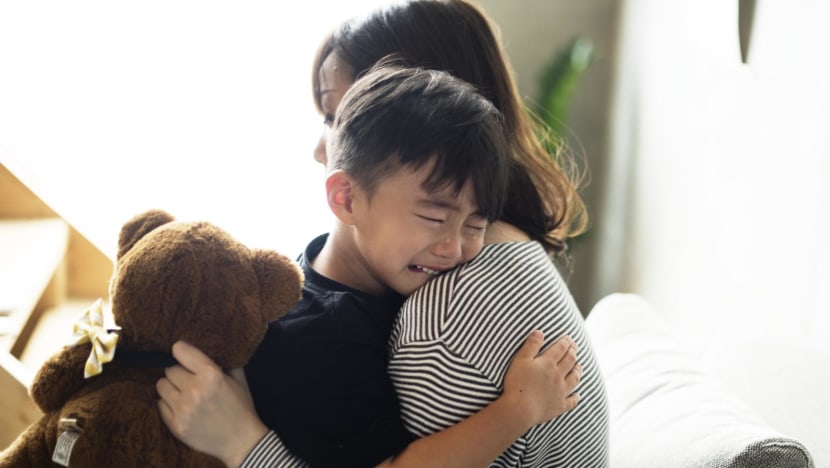Commentary: How can we expect children to be honest when we lie to them?
Children learn about honesty from their parents. Put simply, lying begets lying, says NTU’s Setoh Peipei.


This audio is generated by an AI tool.
SINGAPORE: “If you don’t behave, the police will catch you.” “The tooth fairy gave you that S$2.” “The fish isn’t dead, it’s just sleeping.” Have you ever lied to a child?
Parents often preach to their children that "honesty is the best policy," but in their daily lives, it can be easy to overlook this ideal and tell a fib.
In fact, more than 80 per cent of parents in Singapore admit to having lied to their children, in the name of parenting, according to a study I co-authored and published with the American Psychological Association.
Why do parents resort to these falsehoods? Sometimes, the truth is too complex to explain, time is short, or it may seem easier to gain behavioural compliance.
At other times, it may be to protect children from harsh realities, such as illness or death.
The honesty paradox is that as parents, we teach children to be honest, yet we lie to them.
How can we expect our children to learn honesty when we model the opposite behaviour? Is it possible to teach our children to be honest if we lie to them?
LYING TO CHILDREN IS NOT HARMLESS
Parents may think lying to their children is harmless, but our research has found that children know when they are being manipulated, so mum and dad are not really getting away with it.
"Parenting by lying" may also inadvertently encourage children to lie to their parents.
In a study published in the Journal of Experimental Child Psychology in April, we found that children who are told "instrumental lies", such as false threats or promises, are more likely to lie to their parents.
Even exposure to white lies, such as saying “good job” when it’s not true, can make children more likely to tell fibs, although the effect is only seen in those who know they have been lied to.
Beyond our research, studies conducted in the United States, Canada, Türkiye and Singapore, have linked parental dishonesty to other adverse outcomes, such as anxiety, depression and weaker parent-child relationships.
Children learn about honesty from their parents. Put simply, lying begets lying. This creates a troubling cycle where lying becomes normalised. These negative implications can carry through to adolescence and adulthood.
When children lie to their parents or are dishonest about experiences in their lives, it erodes their ability to communicate with mum and dad, reduces their trust in the relationship, and also alienates the parent.
As they mature into adults, they may use similar lies to obtain compliance from those around them. This behaviour not only strains relationships but also generates internal turmoil, as they grapple with feelings of guilt and shame associated with lying.
TELL THE TRUTH AND NOTHING BUT THE TRUTH?
Is it possible to avoid lying altogether?
There are situations when telling a lie may seem justified to protect your child or maintain their innocence. It is easier to say, “the fish is sleeping”, than to break the bad news about their pet.
However, taking the time to explain a serious issue to your child, at a level that they can understand, is important for their development. Learning about the truth from a kind parent in an age-appropriate and sensitive manner can help children learn to handle disappointment.
As parents, we often underestimate our children’s ability to understand complex and sensitive topics, as well as their resilience in facing bad news such as failure, disappointment or the death of a pet.
A way to judge children’s level of understanding and readiness is by asking: “Well, what do you think?” This allows them to express their thoughts and feelings, guiding the conversation in a way that meets their developmental needs.
If telling a lie is unavoidable, then it may be best to discuss the lie with them when they are older and better able to understand, instead of leaving them to an unpleasant discovery that mum or dad lied to them in the past.
When it comes to encouraging children without lying, focus on complimenting the effort rather than the outcome. Commenting on the process in a positive way - “You used so many colours in the drawing and drew different shapes with them” - reinforces their hard work and creativity.
As for fairy tales, it is possible to enjoy the stories without believing in them.
Fairy tales often carry positive messages or elements of life's struggles, and provide opportunities to discuss great storytelling and the role of characters. Santa Claus, for instance, can be a symbol of generosity and kindness. The tooth fairy can teach children about the natural process of growing up.
OUR GOALS AS PARENTS
Parents are entrusted with the wonderful responsibility of introducing our children to the world and the world to our children, as New York Times columnist Esau McCaulley puts beautifully.
There is consensus among experts that authoritative parenting - one that is nurturing, responsive and supportive, yet with firm limits and boundaries - works best.
There is no one-size-fits-all approach to parenting, as it depends on each child’s temperament and family circumstances.
But parents are one of the most influential figures for children. If we model honesty, children will learn honesty. If we model lying, children will learn lying.
It is better to sow the seeds of honesty and trustworthiness from young because children will reciprocate what they have learnt from us.
Practising honesty will give a strong foundation for trust and communication between parent and child.
Setoh Peipei is an associate professor in the psychology division, School of Social Sciences, Nanyang Technological University.


















